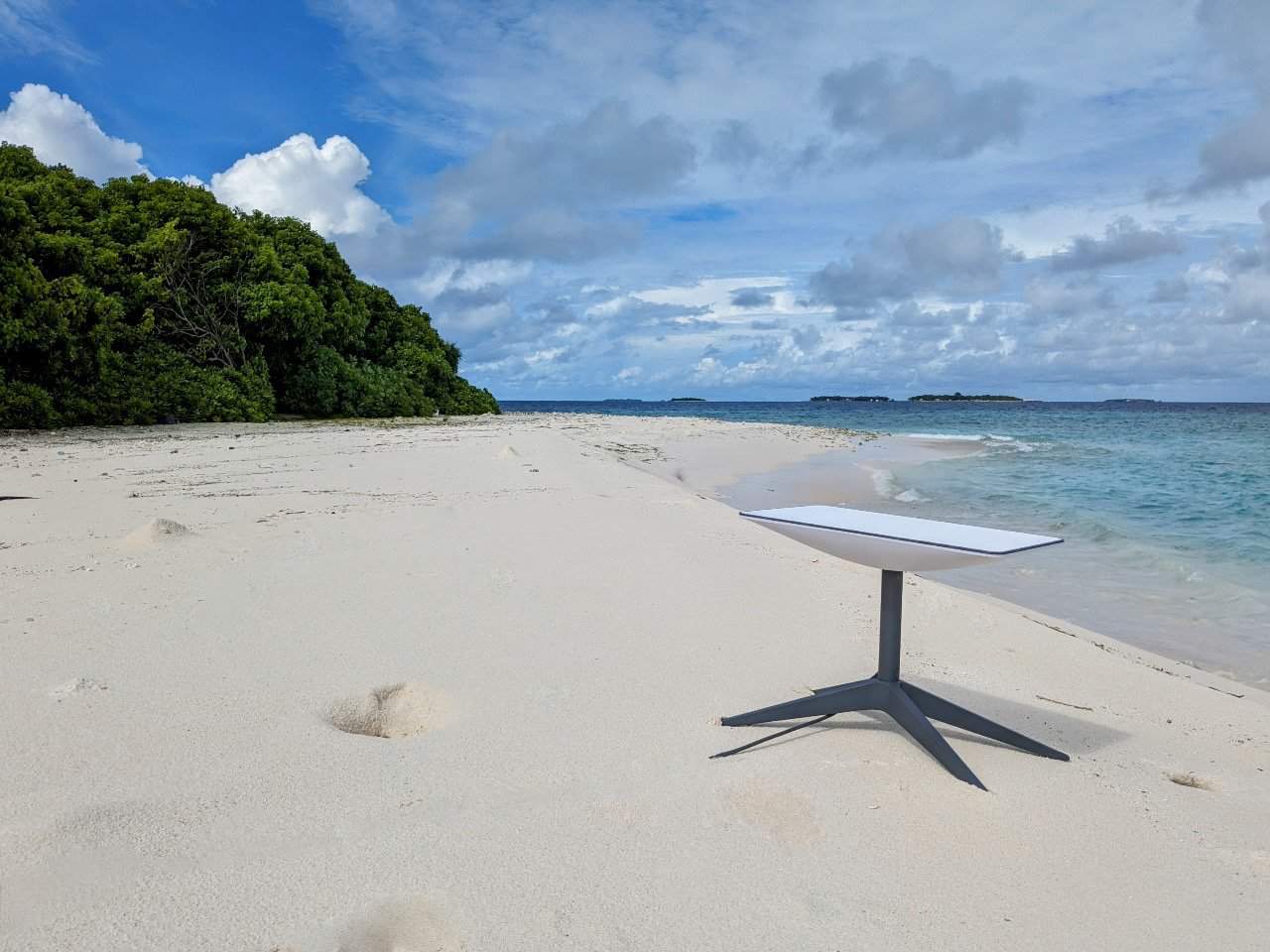Samoa’s digital landscape is soon to leapfrog if the government grants a license to Space Exploration Technologies Corp., commonly known as SpaceX, to operate in Samoa.
This was confirmed by the Regulator, Lematua Gisa Fuatai Purcell at a public forum in Apia with people interested in using Broadband satellite service provider Starlink – a subsidiary fully owned by SpaceX.
The forum was called by the Office of the Regulator to clarify the law as several Samoans have already brought in Starlink dishes without following the legal process through the Office of the Regulator (OOTR).
“The Starlink dishes already in the country need to be approved by the Regulator,” said Lematua.
“All countries have different regulatory rules and systems and Samoa has their own, and we need to know if the equipment and dishes brought into the country meet our Telecommunication Act requirements.
Currently, the Telecommunications Act does not allow individuals to use such service, but only service providers and for specific projects.
“But there is a provision in the Act that gives the Regulator discretion on such matters,” said Lematua.
She also confirmed that the only project Cabinet approved for Starlink is for health and education connectivity which was carried out by local provider, Bluwave Wireless.
She said one of the criteria for SpaceX to register and get a license is to have a local agent.
“I sent them a list of all service providers in Samoa and they selected Bluewave because they had already provided satellite services through another project,” said Lematua.
She said SpaceX application for a license to operate in Samoa is already in the process and will allow Samoans to legally use their services.
Before then, anyone bringing in Starlink dishes will be confiscated at the border.
Some of the members of the public and business people who attended the public forum called by the Office of the Regulator.
“SpaceX does not need us, but we need SpaceX,” said the Regulator.
She said SpaceX’s purpose is bridging the digital divide and other countries are already investing in satellite connectivity and access especially in remote areas and had proven very handy during times of disaster.
She cited the time when she was the head of the International Telecommunication Union (ITU) in Geneva and witnessed the reality of communication breakdown when disaster struck that part of the world.
She was the point of contact when communication was down and she quickly informed her staff to charge and test all satellite devices to be used to restore communication.
The same scenario happened in Tonga when a volcano erupted two years ago and cut the submarine cable along with all communication to the outside world.
Elon Musk and SpaceX stepped in with its satellite services and restored communications and connectivity between Tonga and the world after a five weeks’ blackout.
The forum also pointed to the reasons why people are bringing in Starlink dishes was because they are not being served in terms of access and speed by the current service providers.
Despite promotions of rolling out 5G, users still complain about losing service and buffering in the middle of Apia town especially at the Government Building.
The Regulator rubbished the concern raised by Vodafone that allowing SpaceX operation in Samoa means loss of revenue to overseas.
She said both internet service providers Vodafone and Digicel pay annual fees for licenses and that revenue belongs to the Government.
“Both Vodafone and Digicel can obtain Starlink dishes and set them up anywhere and sell capacity to their customers, and this will put their concern of losing customers at rest,” said Lematua.
She also said that she had stopped TV advertising that inaccurately promote 100 percent connectivity coverage of the country and that there are areas where there is still a big need for such services in the country.
Meanwhile, a similar scenario is happening in Vanuatu where border workers are confiscating Starlink equipment.
People using the service had signed up overseas – likely in Australia and New Zealand – and have brought the equipment into the country. Starlink dishes smuggled into Samoa flared up parliamentary debate last month when former PM and Opposition Leader questioned why the cost of the internet are so expensive through the submarine cable. He also questioned why people are bringing in Starlink dishes mostly likely bought by their relatives overseas with the intention to use in Samoa.
